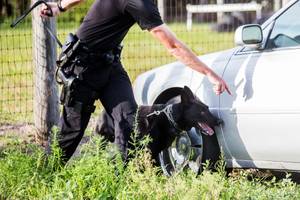 Defendants in criminal cases often face an uphill battle as they respond to the charges against them. Law enforcement officials have significant resources that they may use as they investigate an alleged crime, gather evidence, and build a case against a person. However, defendants have certain rights, including protections against unreasonable searches and seizures. Recently, the Connecticut Supreme Court issued a ruling that may affect the types of searches that may be performed and the evidence that may be allowed in cases involving drug crimes.
Defendants in criminal cases often face an uphill battle as they respond to the charges against them. Law enforcement officials have significant resources that they may use as they investigate an alleged crime, gather evidence, and build a case against a person. However, defendants have certain rights, including protections against unreasonable searches and seizures. Recently, the Connecticut Supreme Court issued a ruling that may affect the types of searches that may be performed and the evidence that may be allowed in cases involving drug crimes.
In the case of State of Connecticut v. Ricardo Correa, the defendant was charged with multiple drug-related offenses. During his initial trial, the defendant filed a motion to suppress evidence, claiming that the evidence was uncovered due to the use of a drug-sniffing dog and an officer’s visual observations that were performed prior to obtaining a search warrant. This motion was denied, and the defendant was convicted and sentenced to nine years in prison. The defendant appealed the case, but the Appellate Court ruled against him. However, after a further appeal, the Connecticut Supreme Court reversed the Appellate Court’s decision and found that the search was unconstitutional.
The question of constitutionality in this case involved whether a canine sniff prior to receiving a search warrant is considered to be an illegal search. Officers had been conducting surveillance of the defendant at a motel room, and they performed a sweep on the walkway outside the motel room with a drug-sniffing dog. When the dog indicated that the defendant’s room contained narcotics, officers applied for a search warrant. The defendant claimed that conducting a canine sniff without a warrant was a violation of the Connecticut state constitution’s protections against unreasonable searches or seizures.
The defendant also claimed that a “visual sweep” of the motel room conducted by officers was an unconstitutional search. While he had refused to allow access to the room without a warrant, officers asked him to open the door so they could verify that nobody else was in the room where they could destroy evidence. While the door was open, an officer observed items that he considered to be drug paraphernalia (a digital scale and a plastic sandwich bag). These observations were included in the officers’ application for a search warrant.
While the Appellate Court ruled that the canine sniff was not considered an unreasonable search under the Connecticut constitution and the visual sweep was permissible to prevent the destruction of evidence, the Supreme Court reversed this decision. It ruled that the Appellate Court was incorrect in deciding that the canine sniff was lawful and the visual sweep was justified. The case was remanded to the trial court to determine whether evidence seized based on the search warrant was admissible based on factors other than the canine sniff and visual sweep.
At Woolf & Ross Law Firm, LLC, we understand how to protect defendants’ rights in criminal cases, and we work to ensure that any evidence that was obtained illegally cannot be used against our clients. Contact our Hartford criminal defense attorney at 860-290-8690 to set up a complimentary consultation and get the defense you need against drug charges or other accusations.
Source:
https://casetext.com/case/state-v-correa-38
 50 Founders Plaza
50 Founders Plaza

